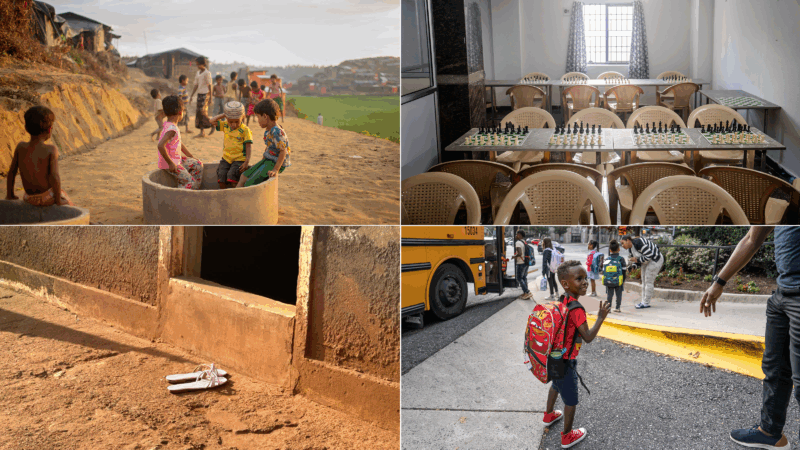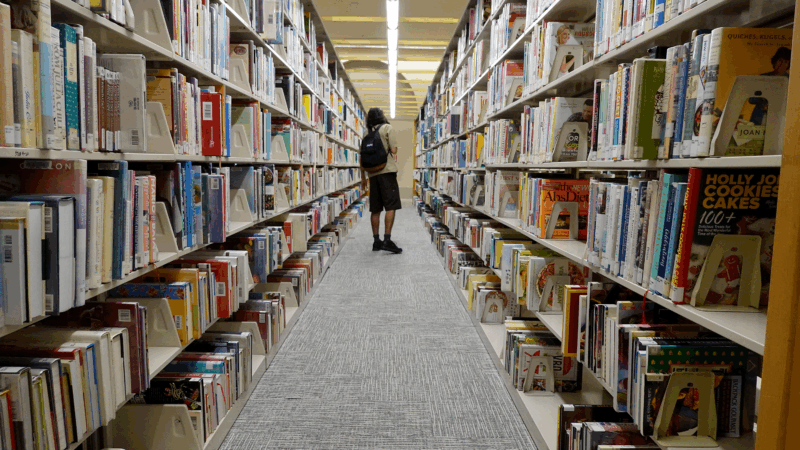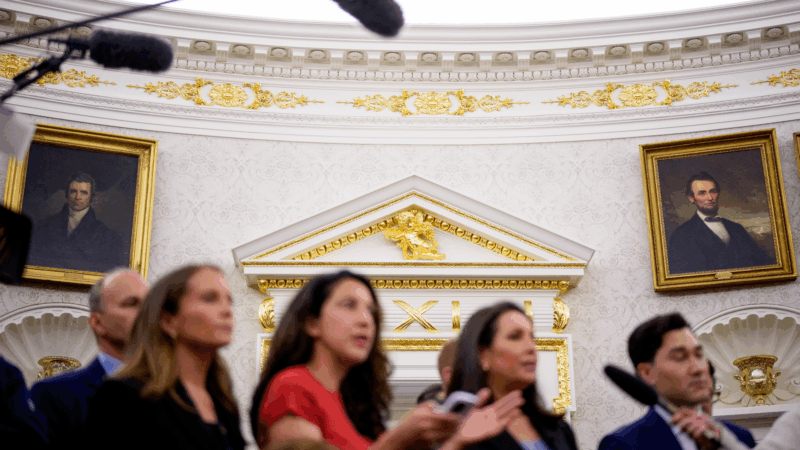Paying For Charter Schools In The South
Florida has about 650 charter schools. They are part of school districts but are privately managed and largely free of many of the rules governing traditional public schools. But as enrollment in charters has increased, so has the financial cost. WFSU’s Lynn Hatter reports for the Southern Education Desk that Tennessee and Georgia are also struggling to find ways to support their charter schools.
In Gadsden County, Florida, one of the lowest performing districts in the state, sits Crossroads Academy charter school. Crossroads most recently won national praise as a Blue Ribbon School of Excellence. But it didn’t start out that way. Principal Kevin Forehand says, it’s been an evolution.
“It actually evolved from an alternative program. When the charter school law started in 1996, we picked it up in 1997,” Forehand says. “I don’t want to say we had to shave the alternative image, but we had to become more than an alternative school.”
Yet for every three charter schools that succeeds, one fails. Florida has a 30-percent charter school failure rate. And a big reason for that is financial. Adam Miller, leader of Florida’s School Choice Office defends the number of closed schools and the method of counting them.
“It includes schools that merged, it includes that schools that never actually opened but got a number. ….there is some context that’s important. For example when you look at the state database, there’s also 1200 traditional public schools that show up as closed as well,” says Miller.
“I think we’re now at a point where we have to make a decision. Re-institute a moratorium on charters, or bleed them to death.”
Charter school lobbyist Jim Horne wants the state board of education to support more funding for charter schools. He’s a former Florida Education Commissioner. Charters have historically received less funding than their traditional school counterparts, that’s largely due to a disparity in school construction and maintenance dollars. During the past few years charters have gotten the bulk of the state-based funding for those projects. But Robert Weissert — Vice President of Research for the think tank Florida TaxWatch points out it’s not enough.
“As to how we fund it—whether its state money coming out or local money, it’s all taxpayer money funding public schools, and we need to find a distribution that’s fair for the students to make sure they’re going to school in a safe environment,” says Weissert.
The charter school lobby is once again eying local school district tax dollars to make up the difference. Some districts share that money with charters, others don’t. That’s created a system-within-a-system which both sides say is unfair. It’s a similar story in Tennessee, where less than 100 charter schools have managed to open and only a handful have closed.
Tennessee Charter School Center Policy Director Emily Lilley credits that slow and steady approach with Tennessee’s low-closure rate. But she notes that could soon start to change. Tennessee is also home to the Achievement School District, which oversees the conversion of low-performing traditional public schools into charters.
“We passed a piece of legislation last year that everyone colloquially referred to as the default closure act which says if a charter school appears on the state priority list—the bottom 5 percent eligible for ASC takeover — then that charter school would be automatically closed.”
That list comes out in 2017. Meanwhile Georgia, Florida’s Northern neighbor has 118 charters.
Louis Erste, Director of the Georgia Department of Education, says the state has been picky when it comes to who can operate a charter:
“We make it moderately harder to get a charter to make sure you can do a good job before we risk any education ill for any child who might attend your school,” says Erste.
In all three states charters get less dollars than their traditional public schools. Georgia has launched a commission on school funding to address the financial disparities. And Tennessee is also looking at ways to close the gap—doing like Florida and focusing in on those local school dollars for maintenance and construction.
This report is supported by a grant from the Corporation for Public Broadcasting. Tomorrow in the final segment the Southern Education Desk will look at the charter school movement in Mississippi and Alabama, the two most recent Southern states with charter school laws.
From chess to a medical mystery: Great global reads from 2025 you may have missed
We published hundreds of stories on global health and development each year. Some are ... alas ... a bit underappreciated by readers. We've asked our staff for their favorite overlooked posts of 2025.
The U.S. offers Ukraine a 15-year security guarantee for now, Zelenskyy says
Ukrainian President Volodymyr Zelenskyy said Monday the United States is offering his country security guarantees for a period of 15 years as part of a proposed peace plan.
Genre fiction and female authors top U.S. libraries’ most-borrowed lists in 2025
All of the top 10 books borrowed through the public library app Libby were written by women. And Kristin Hannah's The Women was the top checkout in many library systems around the country.
A ‘very aesthetic person,’ President Trump says being a builder is his second job
President Trump was a builder before he took office, but he has continued it as a hobby in the White House.
Teens are having disturbing interactions with chatbots. Here’s how to lower the risks
Teen use of AI chat bots is growing, and psychologists worry it's affecting their social development and mental health. Here's what parents should know to help kids use the technology safely.
Why do so many people ring in the new year on Jan. 1?
Much of the world follows the Gregorian calendar, named after Pope Gregory XIII, who put the finishing touches on a Roman system that integrated ideas from other cultures.






